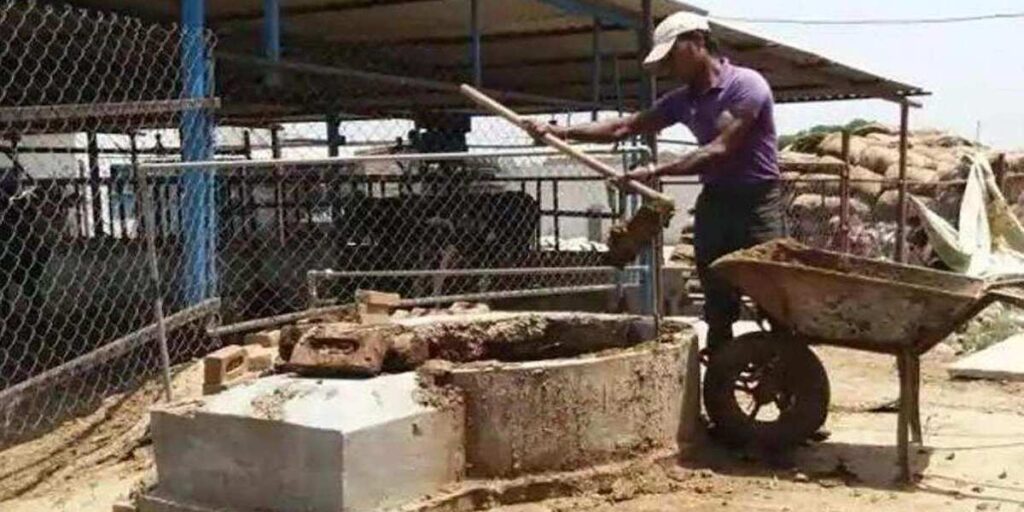Solid Waste Management generates direct employment for 75,000 people, produces 50 million tonnes of bio-manure for crops and leads to clean environment

Two years after the Government of India’s launched Sustainable Alternative Towards Affordable Transportation scheme (SATAT), results show that this developmental effort has benefited both vehicle- users as well as farmers and entrepreneurs.
The initiative holds great promise for efficient municipal solid waste management and in tackling the problem of polluted urban air due to farm stubble-burning and carbon emissions.
The Compressed Bio Gas (CBG) from these wastes is helping in bringing down dependency on crude oil imports and in realising the Modi government’s vision of enhancing farmers’ income, rural employment and entrepreneurship.
SATAT was launched on October 15, 2018, by Union Minister for Petroleum & Natural Gas Dharmendra Pradhan.
Given the importance that SATAT provides to clean and green environment, Asian Development Bank (ADB) has provided aid of $ 2 million to adopt processing projects of 1G ethanol, 2 ethanol, ESMA, and biomass supply chain, etc.
SATAT has a four-pronged agenda of utilizing more than 62 million metric tonnes of waste generated every year in India, cutting down import dependence, supplementing job creation in the country and reducing vehicular emissions and pollution from burning of agricultural/organic waste.
It may be noted that Bio-gas is produced naturally through a process of anaerobic decomposition from waste / bio-mass sources like agriculture residue, cattle dung, sugarcane press mud, municipal solid waste, sewage treatment plant waste, etc. After purification, it is compressed and called CBG, which has pure methane content of over 95%.
Compressed Bio-Gas is exactly similar to the commercially available natural gas in its composition and energy potential. With calorific value (~52,000 KJ/kg) and other properties similar to CNG, Compressed Bio-Gas can be used as an alternative, renewable automotive fuel. Given the abundance of biomass in the country, Compressed Bio-Gas has the potential to replace CNG in automotive, industrial and commercial uses in the coming years. The potential for Compressed Bio-Gas production from various sources in India is estimated at about 62 million tonnes per annum.

Benefits of the programme
There are multiple benefits from converting agricultural residue, cattle dung and municipal solid waste into CBG on a commercial scale:
- Responsible waste management, reduction in carbon emissions and pollution
- Additional revenue source for farmers
- Boost to entrepreneurship, rural economy and employment
- Support to national commitments in achieving climate change goals
- Reduction in import of natural gas and crude oil
- Buffer against crude oil/gas price fluctuations
Implementation
Compressed Bio-Gas (CBG) plants are being set up mainly through independent entrepreneurs.
CBG produced at these plants will be transported through cascades of cylinders to the fuel station networks of the Public Sector Oil Marketing Companies (OMCs) – Indian Oil Corporation Ltd (IOCL), Hindustan Petroleum Corporation Ltd (HPCL), Bharat Petroleum Corporation Ltd (BPCL), Numaligarh Refinery Ltd (NRL), Mangalore Refinery & Petrochemicals Ltd (MRPL) – for marketing as a green transport fuel alternative.
The 1,500-strong CNG stations network in the country currently serves about 32 lakh gas-based vehicles.
The entrepreneurs are able to separately market the other by-products from these plants, including bio-manure, carbon-dioxide, etc., to enhance returns on investment.
It is planned to roll out 5,000 Compressed Bio-Gas plants across India in a phased manner, with 250 plants by the year 2020, 1,000 plants by 2022 and 5,000 plants by 2025. These plants are expected to produce 15 million tonnes of CBG per annum, which is about 40% of current CNG consumption of 44 million tonnes per annum in the country.
At an investment of approx. Rs. 1.7 lakh crore, this initiative is expected to generate direct employment for 75,000 people and produce 50 million tonnes of bio-manure for crops.
Pricing framework for CBG
To be retailed through OMCs / Fixed for three years from 1.10.2018, the price will be reviewed at the end of 3 years.
Basic Price of CBG meeting IS 16087: 2016 standard, compressed at 250 bar and delivered at OMC Retail Outlet in cascades is Rs 46 /kg. The applicable GST is at 5%. Hence, the total supply price (incl. GST) to be paid to the entrepreneur is Rs. 48.30 / kg.
Additionally, an element of Rs. 2 per kg of CBG towards cost of setting up of infrastructure e.g. booster compressor, dispensing unit, etc. at retail outlet and Rs. 0.50 per kg of CBG towards electricity charges for operation of booster compressor, dispensing unit, etcat retail outlet, shall be provided to OMC or entrepreneur, as per whosoever sets up infrastructure at retail outlet.


